Related Research Articles
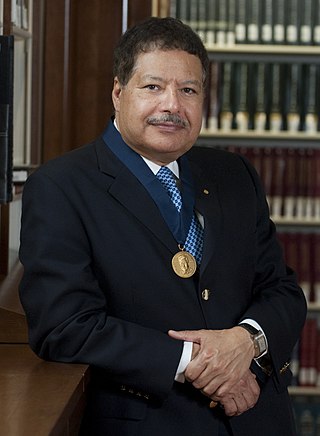
Ahmed Hassan Zewail was an Egyptian and American chemist, known as the "father of femtochemistry". He was awarded the 1999 Nobel Prize in Chemistry for his work on femtochemistry and became the first Egyptian and Arab to win a Nobel Prize in a scientific field, and the second African to win a Nobel Prize in Chemistry. He was the Linus Pauling Chair Professor of Chemistry, a professor of physics, and the director of the Physical Biology Center for Ultrafast Science and Technology at the California Institute of Technology.
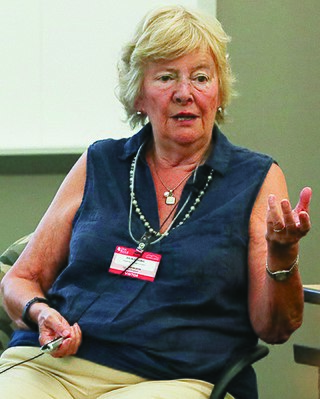
Dame Julia Stretton Higgins is a British polymer scientist. Since 1976 she has been based at the Department of Chemical Engineering at Imperial College London, where she is emeritus professor and senior research investigator.

Sir James Fraser Stoddart is a British-American chemist who is Board of Trustees Professor of Chemistry and head of the Stoddart Mechanostereochemistry Group in the Department of Chemistry at Northwestern University in the United States. He works in the area of supramolecular chemistry and nanotechnology. Stoddart has developed highly efficient syntheses of mechanically-interlocked molecular architectures such as molecular Borromean rings, catenanes and rotaxanes utilising molecular recognition and molecular self-assembly processes. He has demonstrated that these topologies can be employed as molecular switches. His group has even applied these structures in the fabrication of nanoelectronic devices and nanoelectromechanical systems (NEMS). His efforts have been recognized by numerous awards including the 2007 King Faisal International Prize in Science. He shared the Nobel Prize in Chemistry together with Ben Feringa and Jean-Pierre Sauvage in 2016 for the design and synthesis of molecular machines.

Henry Frederick "Fritz" Schaefer III is a computational and theoretical chemist. He is one of the most highly cited chemists in the world, with a Thomson Reuters H-Index of 121 as of 2020. He is the Graham Perdue Professor of Chemistry and Director of the Center for Computational Chemistry at the University of Georgia. Before becoming professor at Georgia he was professor at University of California, Berkeley and in 2004, he became Professor of Chemistry Emeritus, at UC Berkeley
Tobin Jay Marks is the Vladimir N. Ipatieff Professor of Catalytic Chemistry, Professor of Material Science and Engineering, Professor of Chemical and Biological Engineering, and Professor of Applied Physics at Northwestern University in Evanston, Illinois. Among the themes of his research are synthetic organo-f-element and early-transition metal organometallic chemistry, polymer chemistry, materials chemistry, homogeneous and heterogeneous catalysis, molecule-based photonic materials, superconductivity, metal-organic chemical vapor deposition, and biological aspects of transition metal chemistry.
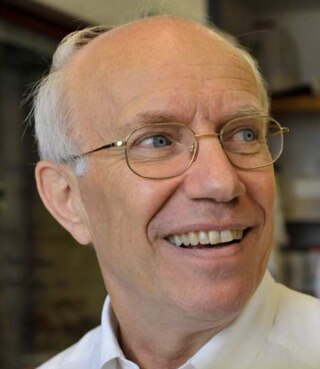
Pierre Braunstein is a French chemist. He was director of the Laboratoire de Chimie de Coordination of Strasbourg (France) and is a member of the French Academy of Science.
The European Chemical Society (EuChemS) is a European non-profit organisation which promotes collaboration between non-profit scientific and technical societies in the field of chemistry.

Omar M. Yaghi is the James and Neeltje Tretter Chair Professor of Chemistry at the University of California, Berkeley, the Founding Director of the Berkeley Global Science Institute, and an elected member of the US National Academy of Sciences as well as the German National Academy of Sciences Leopoldina.

Ernesto Estrada is a Cuban-Spanish scientist. He has been Senior ARAID Researcher at the Institute of Mathematics and Applications at the University of Zaragoza, Spain since 2019. Before that he was the chair in Complexity Science, and full professor at the Department of Mathematics and Statistics of the University of Strathclyde, Glasgow, United Kingdom. He is known by his contributions in different disciplines, including mathematical chemistry and complex network theory.
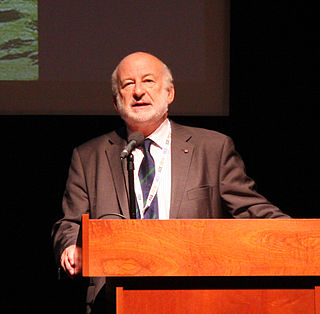
John Anthony Pickett CBE DSC FRS FLSW is a British chemist who is noted for his work on insect pheromones. Pickett is Professor of Biological Chemistry in the School of Chemistry at Cardiff University. He previously served as the Michael Elliott Distinguished Research Fellow at Rothamsted Research.
Jesús Jiménez Barbero is a Spanish scientist who has contributed to the advance of glycoscience by unraveling the conformational properties of carbohydrates and analogues and the molecular basis of their interactions with proteins, using a multidisciplinary approach that employs carbohydrate synthesis, molecular biology, molecular modelling and Nuclear Magnetic Resonance (NMR) spectroscopy.

Paul T. Anastas is an American scientist, inventor, author, entrepreneur, professor, and public servant. He is the Director of Yale University's Center for Green Chemistry and Green Engineering, Previously he served as the Science Advisor to the United States Environmental Protection Agency as well as the Agency's Assistant Administrator for Research and Development, appointed by President Barack Obama.

Donald Gene Truhlar is an American scientist working in theoretical and computational chemistry and chemical physics with special emphases on quantum mechanics and chemical dynamics.
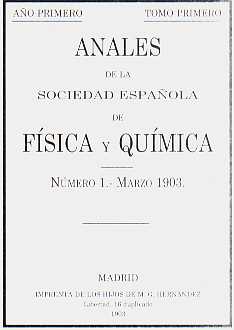
The Spanish Royal Society of Chemistry (RSEQ) is a Spanish scientific society dedicated to the development and dissemination of chemistry, in its aspect of pure science and in its applications. It originated in 1980 after the split of the Spanish Royal Society of Physics and Chemistry which itself was founded in 1903.
Goverdhan Mehta FNA, FASc, FTWAS, FRS, FRSC is an Indian researcher and scientist.

Bernard Lucas Feringa is a Dutch synthetic organic chemist, specializing in molecular nanotechnology and homogeneous catalysis. He is the Jacobus van 't Hoff Distinguished Professor of Molecular Sciences, at the Stratingh Institute for Chemistry, University of Groningen, Netherlands, and an Academy Professor of the Royal Netherlands Academy of Arts and Sciences. He was awarded the 2016 Nobel Prize in Chemistry, together with Sir J. Fraser Stoddart and Jean-Pierre Sauvage, "for the design and synthesis of molecular machines".
The Lord Lewis Prize is awarded by the Royal Society of Chemistry for distinctive and distinguished chemical or scientific achievements together with significant contributions to the development of science policy. The recipient receives a medal, a certificate and a prize of £5,000.
Swapan Kumar Pati is an Indian quantum chemist, a professor of the department of chemistry at the Jawaharlal Nehru Centre for Advanced Scientific Research and the head of the Quantum Theory Molecules to Materials Group at the institute. He is known for his studies on electronic optical and magnetic phenomena in molecular systems and is an elected fellow of the Indian Academy of Sciences, National Academy of Sciences, India and The World Academy of Sciences. The Council of Scientific and Industrial Research, the apex agency of the Government of India for scientific research, awarded him the Shanti Swarup Bhatnagar Prize for Science and Technology, one of the highest Indian science awards, in 2010, for his contributions to chemical sciences.
Partha Sarathi Mukherjee is an Indian inorganic chemist and a professor at the Inorganic and Physical Chemistry department of the Indian Institute of Science. He is known for his studies on organic nano structures, molecular sensors and catalysis in nanocages and is a recipient of the Swarnajayanthi Fellowship of the Department of Science and Technology and the Bronze Medal of the Chemical Research Society of India. The Council of Scientific and Industrial Research, the apex agency of the Government of India for scientific research, awarded him the Shanti Swarup Bhatnagar Prize for Science and Technology, one of the highest Indian science awards, in 2016, for his contributions to chemical sciences.

Ilan Marek is a bi-national French-Israeli chemist. He is particularly interested in the design and development of new stereo- and enantioselective strategies for the creation of several contiguous stereogenic centres and by the functionalization of organic molecules at the least reactive position. These processes are carried out in a single chemical step and lead to the synthesis of complex molecular structures. Understanding reaction mechanisms provides insight into the origins of stereoselectivity and governs optimization for the development of the most effective and general methodologies possible.
References
- ↑ Laudo, Lorena Tomas (17 March 2010). "Interview: Reaching for the summit". Royal Society of Chemistry . Retrieved 24 February 2016.
- ↑ "General Assembly 2010 in Bled" (PDF). EuCheMS Newsletter. European Association for Chemical and Molecular Sciences. February 2011. Retrieved 24 February 2016.